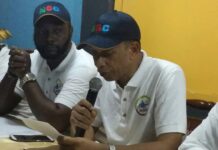By Alhassan Jalloh
Alcohol is a toxic and psychoactive substance with dependency producing properties while Alcoholism is a state of physical dependence on alcohol to the extent that stopping alcohol use will bring withdrawal symptoms. Alcohol is a legal commodity that is not adequately regulated on its production, marketing, distribution and consumption in Sierra Leone. Sierra Leone’s maiden robust attempt to regulate alcohol issues was in 1924 when the colonial authorities reviewed and replaced the 1920 Liquor Ordinance.
According to the World Health Organization, in 2018 more than 3 million die as a result of harmful use of alcohol, this represent 1 in 20 deaths and more than three quarter of these deaths were among men. The harmful use of alcohol is a causal factor in more than 200 disease and injury conditions. According to the 2015 Housing and Population Census Report, 3.5 percent are 65 years and above; out of the 5,030,016 population 10 years and over, 3.5 percent took alcohol, 2.6 percent took both tobacco and alcohol and 83.4 percent took neither tobacco nor alcohol.
The drive to collectively advocate for an evidence-based alcohol policy that controls alcohol production, marketing, distribution and consumption effectively started in 2015 when the Sierra Leone Alcohol Policy Alliance (SLAPA) was established. The alliance has been successfully to lobby the government of Sierra Leone through the Directorate of Non-Communicable Disease and Mental Health of Ministry of Health and Sanitation (MoHS) to reducing harm from alcohol through policy and legislative reforms.
On 29th June the Sierra Leone Alcohol Policy Alliance (SLAPA) and Ministry of Health and Sanitation held a consultative workshop to validate the draft National Alcohol Policy (NAP) for Sierra Leone. The validation exercise came after several consultative meetings at regional and national level for the development for NAP. The validation exercise targeted state and Non-state Actors including Officials of the Ministry of Health and Sanitation, Ministry of Social Welfare, the Security Sector, District and City Council, Women’s Group and Children’s and Young People’s Groups that participated in the consultative meeting in developing the NAP.
The draft policy was shared to members of the Alcohol Control Technical Working Group of MoHS, the Sierra Leone Alcohol Policy Alliance, other non-state actors that participated in the consultative process to make their inputs before the validation exercise. It was also shared to the World Health Organization and other international development agencies their review and inputs that was timely done
The National Consultant for Developing the Alcohol Policy, who also doubles as FoRUT’s Executive Director Mrs. Boi-Jeneh Jalloh said ‘the new policy will place seek to strengthen restrictions on alcohol availability especially among children, it will create opportunity to advance and enforce drink driving counter measures, facilitate access to screening, brief interventions and treatment, enforce bans or comprehensive restrictions on alcohol advertising, sponsorship, and promotion and also raise prices on alcohol through excise taxes and pricing policies’.
The meetings’ key focus was to reconcile, validate and or make inputs into the draft NAP policy in line with WHO Best Practice. The day’s exercise was successfully as participants made review and inputs into the document.



































